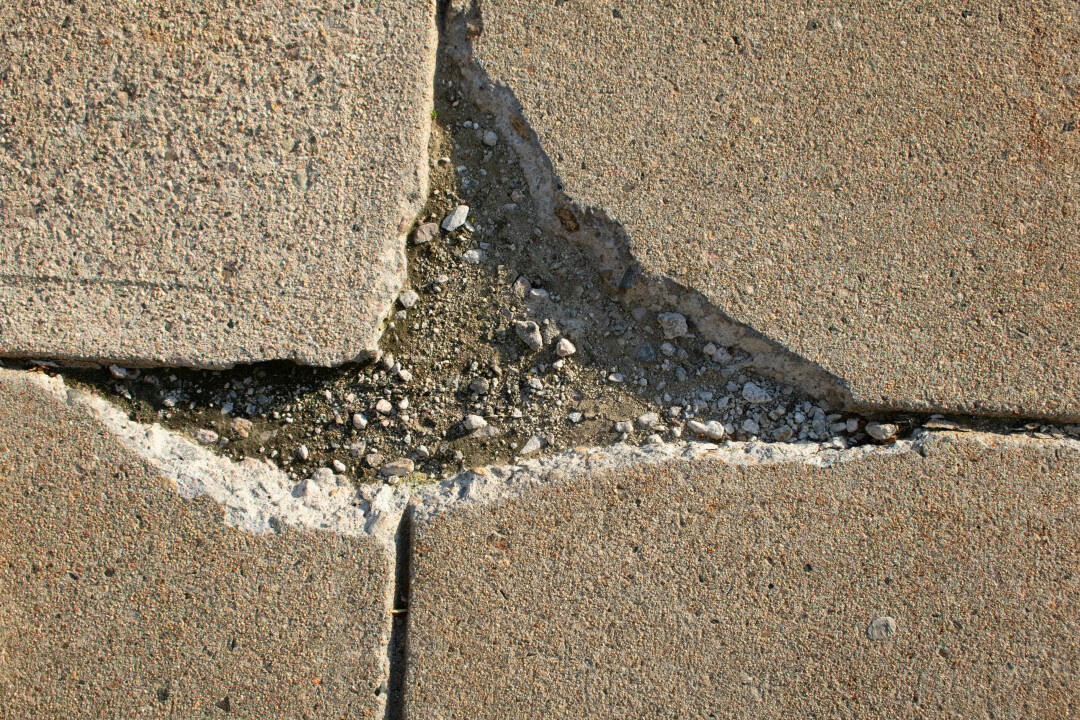
by Donny Abbott on April 14, 2025
During these days leading up to Easter, I find myself drawn to the signs of resurrection all around us. The longer and warmer days, budding trees, and blooming tulips remind us that winter's darkness is yielding to spring's new life. These natural rhythms speak to something deeper in our souls—the perpetual movement from death to life that lies at the heart of our faith.
Each morning, I walk a familiar path in my neighborhood. It’s toward the end of my route where I encounter a section of sidewalk filled with cracks and large chunks of concrete missing. Often, I will pause there and face the sunrise that marks the beginning of a new day. While standing on this broken ground, I offer the same simple prayer: "God, thank you for a new day—a day that isn't promised but a day that is filled with promise and hope."
This moment holds profound meaning for me. The cracked and gouged sidewalk represents the imperfections, wounds, and missing pieces in my own life. In that sacred pause, I am gently reminded that the sun doesn't only rise over smooth sidewalks. Newness and brokenness can—and do—coexist.
All of this reminds me of a recent podcast I listened to, The Place We Find Ourselves, hosted by counselor Adam Young. In the episode, Adam offered this profound insight: "God is someone who creates something that is not derived from your present circumstances."
What a powerful truth! Our God is not bound by the conditions of our current reality. The newness God brings isn't merely an extension or improvement of what already exists—it’s something entirely fresh, unexpected, and transformative.
Throughout Scripture, we witness this divine pattern of newness. In Genesis, we see God creating something out of nothing—bringing order from chaos, light from darkness. This wasn't a minor adjustment to existing reality but the birth of all that is.
We see it again in the story of Abraham and Sarah, an elderly couple who were long past childbearing years. When all biological hope had faded, God brought forth new life—a son, Isaac, whose name means "laughter." Their joy came not from an extension of their circumstances but from God's intervention that transcended those limitations.
And then there is the resurrection—the ultimate expression of God's power to bring forth what is new. How beautiful that our Scripture passage today speaks of "new." This word perfectly aligns with God's very nature, for our God is truly a God of new things.
In Matthew's account, we read: "After the Sabbath, at dawn on the first day of the week, Mary Magdalene and the other Mary went to look at the tomb." They expected to find death, finality, and closure. Instead, they encountered an empty tomb and an angel with news beyond comprehension: "He is not here; he has risen, just as he said."
This wasn't merely resuscitation or the continuation of Jesus' previous life. It was something entirely new—a transformed existence that conquered death itself. The resurrection wasn't derived from the circumstances of Good Friday but emerged as God's radical alternative to them.
I believe our spiritual lives follow this pattern too. The God who raised Jesus doesn't simply improve our broken places—He transforms them. The cracks in our sidewalks become spaces where new light enters. Our wounds become passages for grace. Our emptiness becomes capacity for God's presence.
Too often, we approach our brokenness with shame or despair. We try desperately to hide our cracks or fill them with whatever temporary solutions we can find. But what if these very cracks are where God's light most powerfully enters? What if our missing pieces are precisely where God wants to create something new?
When I stand on that broken sidewalk each morning, I'm practicing a form of surrender. I'm acknowledging that my life, like that concrete path, bears the marks of time, struggle, and imperfection. But I'm also proclaiming that these broken places are exactly where God meets me with the promise of new life.
This is the paradox at the heart of our faith: that resurrection doesn't erase our wounds but transforms them. Even Jesus, in his resurrected body, still bore the marks of crucifixion. They weren't signs of defeat but evidence of love's triumph over death.
As we walk through this Easter season, I invite you to notice your own cracked sidewalks—those places of brokenness, disappointment, or loss. Don’t rush to fix or hide them. Instead, stand there for a moment, face the rising sun, and remember that God creates what is not derived from your present circumstances.
For it is often in these very cracks that new life begins to grow.
He. Is. Risen!




